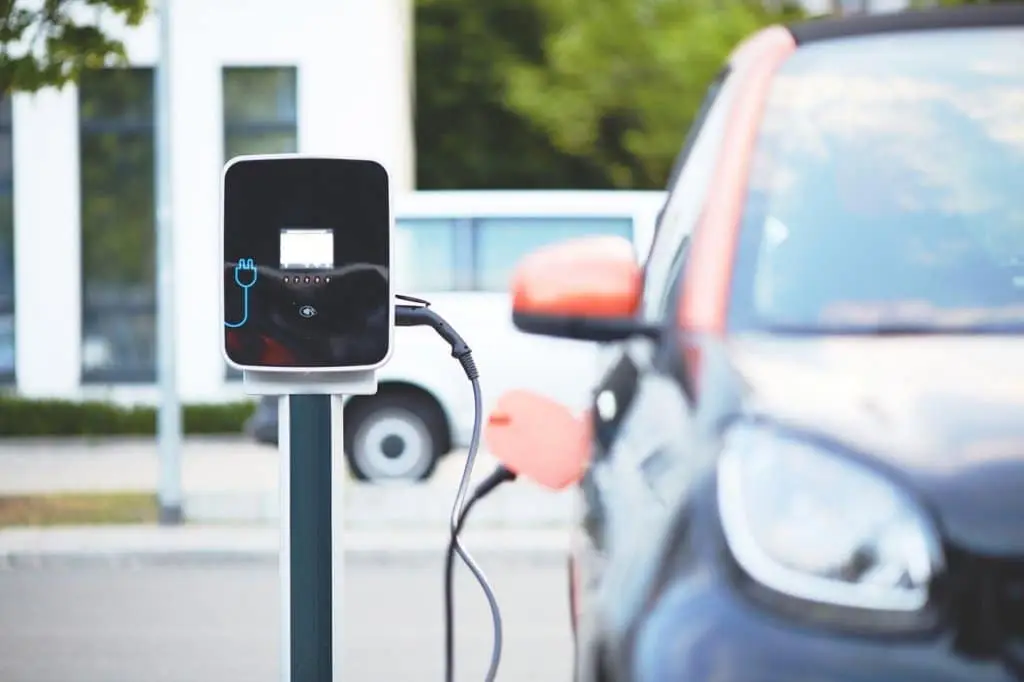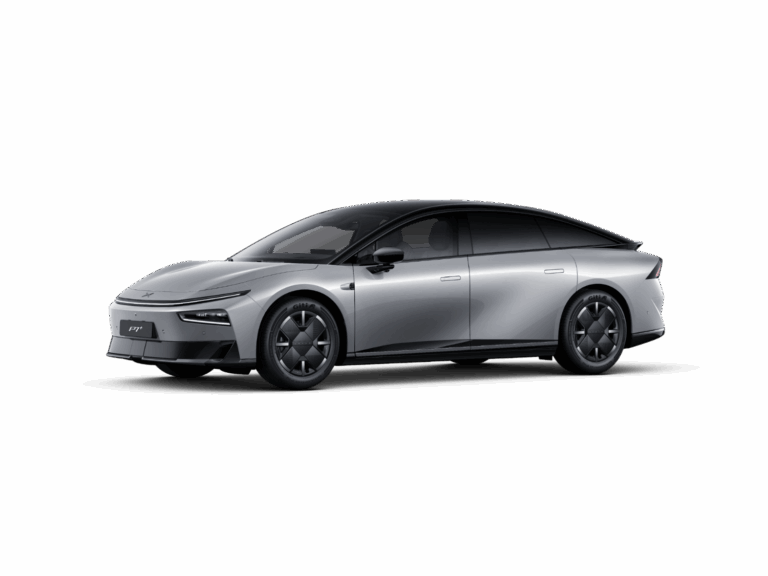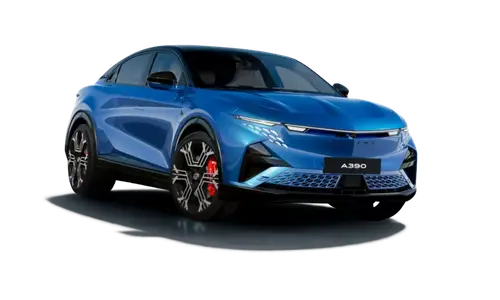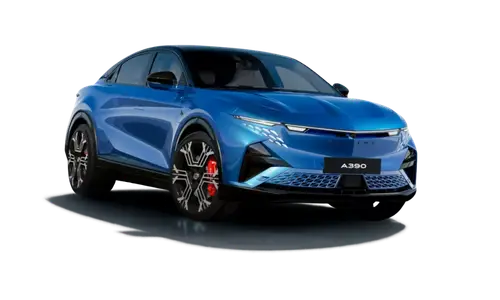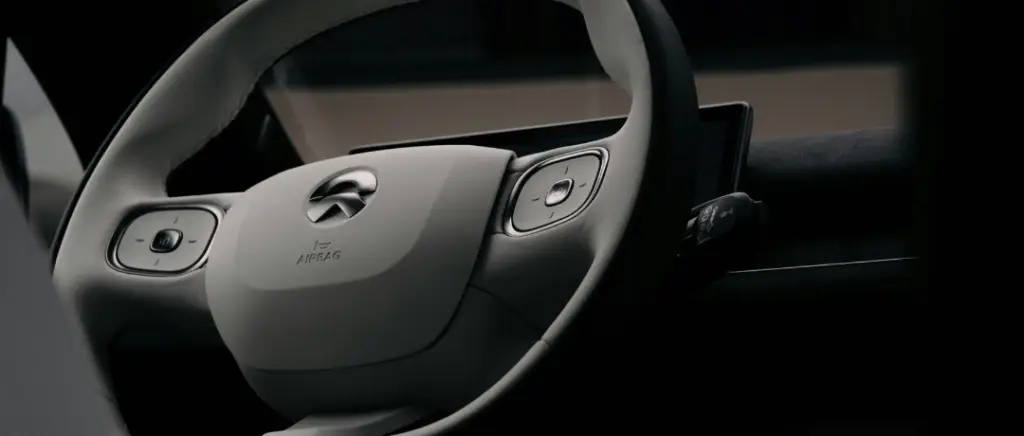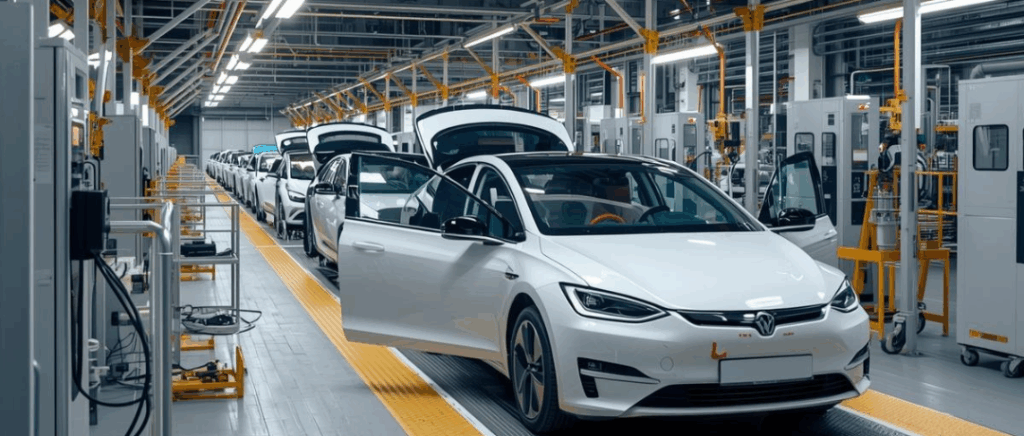Help with installing a charging point for private individuals: the tax credit
Le Tax credits for the energy transitionis an amount deducted from your tax bill, allowing you to reduce your tax bill by installing a charging point for your home individual. It was set up with the help of MaPrimeRenov'to replace the CITE (Tax Credit for Ecological Transition).
The credit will be granted for just one charging system per tax household. In this case, you will be entitled to a maximum of €500 in tax credit, with one system installed in your main residence and another in your second home.
Single, divorced or widowed people can benefit from the tax credit for installing two charging systems, one in their main home and another in a second home.
Similarly, married or civil union couples subject to joint taxation can claim the tax credit for two charging systems in their main home and two in their second home, giving a total tax credit of up to €1,200 for the installation of two charging systems per home. It should be noted, however, that this measure is subject to certain conditions and that supporting documents must be provided to qualify for the tax credit.
It's important to note that the authorities may take back the tax credit you were awarded if you were reimbursed for the installation of the charging point within five years of installation. However, no repayment will be made if the repayment is the result of a claim.
Tax credit: connected bollards, intelligent bollards or controlled bollards
The amount of the tax credit for the installation of an electric vehicle charging point is :
- 500 per charging system for a connected charging point
- 300 per charging system for a non-connected charging point, with or without load shedding
The difference in price between the two types of terminal is due to the additional functions offered by connected terminals.
To qualify for the tax credit, the following conditions must be met:
- Expenditure must be incurred between 1 January 2021 and 31 December 2025.
- The charging point must be installed on land or a building owned, leased or occupied free of charge by the taxpayer.
- The charging point must be used to charge an electric vehicle.
The tax credit is deducted from income tax for the year in which the expenditure is incurred. If the tax credit exceeds the tax due, the excess can be carried forward for up to five years.
To claim the tax credit, taxpayers must complete form 2042-RICI and attach it to their tax return.
Good to know: keep your supporting documents, as the tax authorities may ask for them (invoice from the company that supplied the materials/equipment and carried out the work).
What's more, as a private individual, installing a recharging point can entitle you to a Reduced VAT of 5.5 %. To achieve this, it is essential that the bollard is installed in accordance with the NF C 15-100 standard. This standard sets out the technical and safety standards for low-voltage electrical installations.
According to the decree issued on 12 January 2017, theinstallation of a charging point with a power rating of 3.7 kW or more requires the intervention of a qualified electrician holder of the IRVE. This certification shows that the electrician has the skills and experience required to install charging stations for electric vehicles.
Obtaining this IRVE (Recharging Infrastructure de Véhicule Électrique) is awarded by AFNOR or Qualifelec on the basis of three levels of training:
- Level 1 Suitable for terminals with a maximum power of 22 kW, without communication or supervision functions.
- Level 2 : intended for terminals with a maximum power of 22 kW, equipped with configurations for Wallbox and station supervision.
- Level 3 designed for charging points with a power rating of over 22 kW, including fast charging points.
Installation assistance for individuals in condominiums: ADVENIR
The €500 tax credit is now available for condominiums. However, you can also benefit from the ADVENIR bonus.
Le ADVENIR programme finances the supply and installation of recharging points for electric vehicles.
Managed by AVEREThe ADVENIR programme is financed by CEE (Energy Savings Certificates) to help reduce the cost of the work required to install a charging point of electric cars.
While thetermination of the ADVENIR programme was due to expire on 10 December 2021, this scheme has been extended until the end of 2025. With this aid now extended, ADVENIR aims to deploy nearly 65,000 new charging points, with a budget of €200 million.
How much is the ADVENIR bonus for condominiums?
Good to know: People wishing to install a charging point for their own home are not eligible for this allowance. The ADVENIR programme does not fund the installation of charging points for private homes.
If the applicant is a private individual, he or she can benefit from subsidies that vary according to the type of recharging solution envisaged.
Here is a summary table for private individuals living in condominiums:
| Résidentiel collectif | Taux total de l'aide | Plafond par point de recharge (HT) |
|---|---|---|
|
Individual use
|
50 %
|
960 €
|
|
Collective use
|
50 %
|
1 660 €
|
|
Collective infrastructure
|
50 %
|
50 % of infrastructure costs
3,000 for outdoor roadworks
|
ADVENIR aid for professionals to install charging points
Advenir also offers grants for the installation of charging stations for businesses and public bodies. Here are the various ceilings:
| Entreprise et personnes publiques | Taux total de l'aide | Plafond par point de recharge (HT) |
|---|---|---|
|
Private parking for HGV fleets
|
50 %
|
960 € à 2 200 €
|
|
Private car park open to the public
|
30 %
|
1 000 € à 2 700 €
|
|
Private car parks open to the public (hotels, restaurants, shops)
|
30 %
|
1 000 € à 1 300 €
|
|
Short-term rental vehicles for employees and company fleets
|
20 %
|
600 €
|
IMPORTANT: the ADVENIR premiums for private car parks open to the public and for intermediate target groups (hotels, restaurants, shops), will expire on 1 August 2023.
Contact our experts in charging stations to benefit from these ADVENIR bonuses before they are definitively abolished.
Then, for local authorities who wish to install bollards on roadways, vhere are the rates:
| Voirie | Taux total de l'aide | Plafond par point de recharge (HT) |
|---|---|---|
|
Roads
|
30 %
|
1 000 € à 9 000 €
|
|
Two-wheelers (scooters, motorbikes, etc.) on the road
|
30 %
|
1 000 €
|
A word of clarification: for two-wheeled vehicles, the amounts vary not only according to the charging power, but also according to the type of socket (type 2 greater than or equal to 3.7 kW and type E less than 3.7 kW). If you would like more information, please visit the Advenir scale for two-wheelers on roads.
Read our special report -Electric vehicle charging points in condominiums: the complete guide.
The ADVENIR premium has been reduced since 1 February 2023
While ADVENIR recently communicated the extension of premiums until 2025New rates have been revised downwards and will apply from 1 February 2023. It will therefore no longer be possible to benefit from the old rates and amounts.
These changes concern :
- on-street recharging points open to the public
- on-street public charging points for 2-wheeled vehicles
- public charging points in private car parks (premium to be withdrawn from the ADVENIR programme on 1 August 2023),
- recharging points open to the public in private car parks for intermediate target groups (hotels, restaurants and shops) (premium to be withdrawn from the ADVENIR programme on 1 August 2023),
Here are the rates and amounts of aid applied from 1 February 2023:
On roads, charging points open to the public or car parks closed to the public
| Puissance de recharge | Taux d'aide | Montant maximal HT par point de recharge |
|---|---|---|
|
Between 3.7 and 11 kW AC
|
30 %
|
1 000 €
|
|
Between 12 and 43 kW AC
|
30 %
|
1 300 €
|
|
Between 20 and 40 kW DC
|
30 %
|
2 700 €
|
|
More than 40 W DC
|
30 %
|
4 500 €
|
|
More than 140 kW DC
|
30 %
|
9 000 €
|
In addition to these amounts, a surcharge may be added to finance the installation of on-demand on-street recharging points, but only for power ratings that include between 3.7 and 11 kW AC; and 12 and 43 kW AC :
| Puissance de recharge | Montant maximal HT par point de recharge |
|---|---|
|
Between 3.7 and 11 kW AC
|
1,000 + €300 additional premium = €1,300
|
|
Between 12 and 43 kW AC
|
1,300 + €300 additional premium = €1,600
|
Charging points open to the general public for 2-wheeled vehicles (scooters, mopeds, motorbikes and mopeds):
| Prise et puissance de recharge | Taux d'aide | Montant maximal HT par point de recharge |
|---|---|---|
|
Type 2 less than or equal to 3.7 kW
|
30 %
|
1 000 €
|
|
Type 2 greater than or equal to 3.7 kW
|
30 %
|
75 €
|
Find out about your financial aid with our simulator!
Need to find out about financial assistance for your recharging solution? Use our project simulator to find out about your subsidies to reduce the costs of buying and installing charging stations.
Mobilians, help for automotive service professionals
While the The ADVENIR programme has been renewed and extended until 2025the programme has added new support for automotive service professionals. Thanks to the collaboration between Mobilians and ADVENIRThis target group can benefit from this financial support for the installation of charging points in their car parks.
Below, you can find the amounts of aid applicable for this grant:
| Usage | Puissance de recharge | Taux d'aide |
Montant HT maximum par point de recharge |
|---|---|---|---|
|
Charging point for fleets and employees
|
/
|
25 %
|
750 €
|
|
Open to all
|
Between 3.7 and 11 kW AC
|
50 %
|
1 700 €
|
|
Open to all
|
Between 12 and 43 kW AC
|
50 %
|
2 200 €
|
|
Open to all
|
Between 20 and 40 kW DC
|
50 %
|
4 500 €
|
|
Open to all
|
More than 40 kW DC
|
50 %
|
7 500 €
|
|
Open to all
|
More than 140 kW DC
|
50 %
|
15 000 €
|
Good to know:from 1 August 2022The total rate of ADVENIR aid for chargepoints open to the public has been reduced from 60 to 50 %.
Regional aid for the purchase of electric vehicle charging points
Local authorities
In addition to the ADVENIR government grant, some regions subsidise the installation of charging points on private land open to the public or on roads.
Local and regional authorities have installed more than 20,000 recharging points, with the aim of establishing a complete network across France and reducing the barriers to the use of electric vehicles.autonomy electric cars and their ability to cover long distances.
In France, by 28 February 2023, there will be 90,803 recharging points which are open to the public, according to the Avere-France barometer and the French Ministry for Energy Transition.
Beev has put together a list of the various regional and local grants available for installing your electric charging point.
City of Paris
The town ofParisproposesdifferent types of aid according to specific criteria. In fact, within a condominium in anticipation of the installation of a recharging point for residents and visitors.
- It will be possible to obtain aid of 50% of the amount excluding tax for pre-equipment linked to the installation of an electric charging point, up to a maximum of €4,000.
- In addition, a grant of 50% of the cost of the work (€500 per charging point, maximum of 4 charging points), i.e. a maximum of €2,000, is available to social landlords or associations wishing to install charging points for residents or visitors.
How do I apply?
Applications for assistance must be made by the building's syndic or landlord. Applications are limited to 1 per year.
You will need log in to your "My Paris" account to attach the requested documents:
- Proof that the building in which the work is to be carried out is managed by the property manager or lessor.
- Kbis extract
- A copy of the invoice for the work carried out
- A photo of the layout
- A bank details statement (RIB) enabling the grant to be received
Once your form has been received within a certain period of time, you will receive the grant from the city of Paris.
The Normandy region
The Normandy region is offering private individuals, micro-businesses and associations a grant of 30 % of the amount excluding tax for the purchase and installation of a charging point, with a ceiling of €15,000 per local authority when a new electric vehicle is purchased at the same time.
Please note that the request must be made with a quotation and not an order form.
Who can apply?
Assistance from the Normandy region is subject to tax income thresholds.
| Nombre de personnes dans le ménage | Seuil de RFR maximum proposé pour une aide de 2 500 € | Seuil de RFR maximum proposé pour une aide de 1 000 € |
|---|---|---|
|
1 person
|
18 960 €
|
28 440 €
|
|
for 2 people
|
27 729 €
|
41 594 €
|
|
3 people
|
33 346 €
|
50 019 €
|
|
4 people
|
38 958 €
|
58 437 €
|
|
5 people
|
44 592 €
|
66 888 €
|
|
per additional person
|
+ 5 617 €
|
+ 8 426 €
|

How do I apply?
To be eligible, your main residence must be in Normandy and you must not have previously benefited from the IDEE Action Mobilité Durable scheme.
At the same time as you apply for a subsidy for your electric vehicle, you must attach the subsidy application for the charging point from this page.platform.
To do this you must :
- Create an accounthere
- Fill in the questionnaire and indicate the price and type of electric car model you are considering.
- Fill in the details of your person and place of birth
- Enter the amount of assistance requested according to your income
- Submit the documents relating to the vehicle and your bank details so that we can receive the grant.
- Submit your latest tax assessment
Once your application has been finalised, you will receive a certificate of submission by e-mail, which will include your application reference.
The Grand Est region
Companies can benefit from a grant of up to50 % of the cost of the project excluding VAT, up to a limit of €1,000 per charge point.
In fact, companies can benefit from this regional subsidy provided that they make the recharging facilities available to staff during working hours.
Only infrastructure that meets the technical criteria of the national Advenir programme is eligible for this grant.
The beneficiary undertakes to mention the Region's financial support in all communication media. It also undertakes to display the regional communication poster specific to this call for projects on the worksite panel.
Who can apply?
All companies registered with the RCS.
From a technical point of view, there are three different levels of recharging power:
- Normal recharging (< 7 kVA)
- Accelerated charging (≤ 22 kVA)
- Fast charging (> 22 kVA)
You will be asked to justify the number of bollards installed and their power ratings.
What projects are eligible?
- Electric recharging infrastructure acquired directly by the beneficiaries concerned, up to a limit of 1,000 charging points.
- Charging infrastructure installed under a concession contract. In this case, the beneficiary of the aid organises a competitive tender for the public service delegation relating to the installation and management of the recharging service for electric and plug-in hybrid vehicles.
- Only facilities accessible to company staff are eligible. (Recharging of the company fleet is accepted if and only if the staff can use the recharging facilities during working hours).
NOTES FROM 1ᵉʳ JANUARY 2025, FREE CHARGING OF ELECTRIC VEHICLES AT WORK WILL NO LONGER BE AVAILABLE TO EMPLOYEES.
- Only charging infrastructure that meets the technical minimums set out in the Advenir national programme for charging points for employees or company fleets in private car parks is eligible for funding.
How do I apply?
Project sponsors are invited to contact the energy transition officer at the Maison de la Région in their area as far in advance of the project as possible.
To acquire this subsidy, companies must submita foldercontaining :
- A letter of intent, addressed to the President of the Region, which must demonstrate that the aid granted has an incentive effect. If this effect is not demonstrated, the aid cannot be granted.
- The fully completed information form that you will find herehere
- A note explaining why the project owner wishes to take part in the call for projects, and setting out the resources that will be used to achieve the objectives.
- A provisional budget and schedule
- K-bis extract and tax returns for the last 3 years.
Where to send your application
Depending on the location of the project, the application should be sent to :
- Territoires des Maisons Saverne/Haguenau - Strasbourg - Sélestat - Mulhouse :
- Mr Chairman of the Regional Council
- Grand Est Region
- Energy Transition Department
- 1 Place Adrien Zeller - BP 91006 - 67070 STRASBOURG Cedex
- Tel.: 03 88 15 64 96
- Territoires des Maisons Thionville/Longwy - Metz - Nancy - Épinal
- Mr Chairman of the Regional Council
- Grand Est Region
- Energy Transition Department
- Place Gabriel Hocquard - CS 81004 - 57036 METZ Cedex 01
- Tel.: 03 87 33 62 85
- Territoires des Maisons Charleville-Mézières/Verdun - Châlons-en-Champagne - Troyes/Chaumont - Saint-Dizier/Bar-le-Duc
- Mr Chairman of the Regional Council
- Grand Est Region
- Energy Transition Department
- 5 rue de Jéricho - CS 70441 - 51037 CHALONS-EN-CHAMPAGNE Cedex
- Tel.: 03 26 70 66 08
In a nutshell
To sum up the various forms of support available for the installation of electric vehicle charging points :
- If you live in a detached house, you are entitled to tax credit for energy transition
- If you live in a condominium, you can apply for the tax credit for the energy transition, benefit from the ADVENIR bonus as well as assistance from the town hall of Paris
- Businesses and public authorities can take advantage of the ADVENIR bonus and assistance with the installation of recharging points bylocal authorities if you operate in certain cities
These various regional grants can be combined with other national grants such as the ADVENIR bonus.
Electric cars are still fairly new on the market, which explains the lack of subsidies in some regions. However, the various regions are increasingly inclined to develop their electric charging networks.
In Pays de la Loire, for example, the region is committed to developing a recharging network within its region, with more than 550 public electric charging points already in place by the end of 2019. With a fast-charging station every 80 km on the region's main routes, you'll find it easy to make your daily journeys in Pays de la Loire.
If you would like to find out more aboutsupport for the installation of charging points for private customers in 2024For more information, see our article on this subject.
